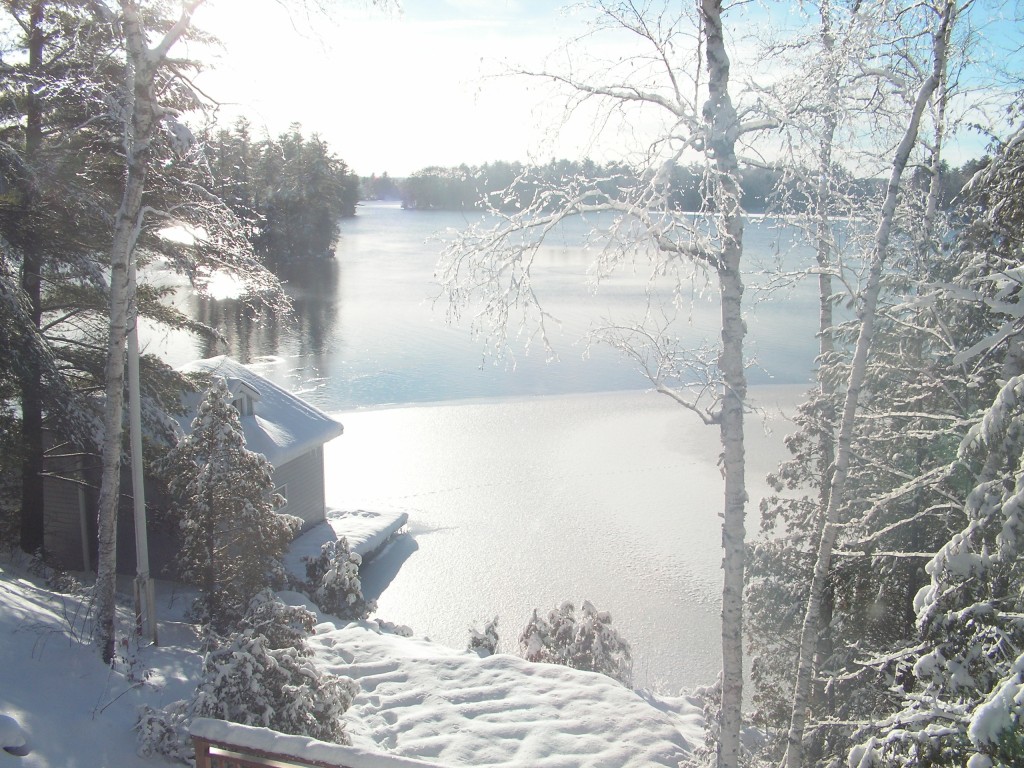Following on from our article on the history of cold water therapy, our very own Effortless Superhuman practitioner, Stephen Hooper, explores the literature behind the effects of cold water therapy on the body. If you were considering trying this home therapy, we’ve done the hard work to provide you with reasons to try it and what it can do for your body.

Depression
One of the most widely quoted research articles is a 2007 paper by Nikolai Shevchuk titled “Adapted cold showers as a potential treatment for depression.” In this paper Shevchuk hypothesizes that depression may be caused by the convergence of two factors:
- A lifestyle that lacks certain physiological stressors
- Genetic make-up that predisposes an individual to be affected by the condition.
The ‘physiological stressors’ Shevchuk is referring to includes frequent acute physical activity as well as frequent (temporary) changes in body temperature. Throughout evolution, humans have been required to exert themselves on a daily basis with brief periods of lifting, carrying, running, jumping, hiking and other primitive patterns. Likewise they would have experienced frequent changes in temperature such as bathing in cold water, forced swimming in cold water, or hunting in very hot weather. One may argue that modern humans may not be exposed to these ‘thermal stressors’ due to temperature-controlled environments (heaters, air-conditioning), warm showers, hot baths and technology that allows for a sedentary lifestyle.
In this study, the proposed treatment protocol would include five minutes of gradual adaptation (showering in warm water that was gradually made colder and colder), followed by the subject showering for three minutes in cold water that was 20 degrees Celsius. This activity was to be performed one to two times daily for several months. The researcher concluded that the scientific evidence that exists appears to support the hypothesis: “Exposure to cold is known to activate the sympathetic nervous system and increase the blood level of beta-endorphin and noradrenaline and to increase synaptic release of noradrenaline in the brain as well.” Shevchuk went on to say that a cold shower is expected to send an “overwhelming amount of electrical impulses from peripheral nerve endings to the brain, which could result in an anti-depressive effect.”
The author provides a significant amount of evidence to support his hypothesis and his claims are certainly plausible. With that said, his theories are based on a study population of three, one of which was himself. Shevchuk recognized that a larger sample size was needed for stronger conclusions and that rigorous testing on subjects who have been diagnosed as clinically depressive would be required as well before this hypothesis could be proven.
Depression appears, like many diseases, to be multi-factorial. Chris Kresser presents the hypotheses that depression may be linked directly to inflammation in the body and not a chemical imbalance in the brain. These statements are supported by the renowned neurologist Dr. David Perlmutter in his books ‘Grain Brain’ and ‘Brain Maker’.
When considering the complexity of a disease like depression we can see that any form of treatment will likely need to be multi-faceted and individualized. Cold-water therapy may indeed be one such treatment that is included in the depressed individual’s overall treatment plan.
Chronic Fatigue Syndrome (CFS) / Anti-Tumour Immunity
 Nikolai A. Shevchuk has hypothesized several other possible benefits for repeated cold stress. This has included a 2007 article entitled “Possible use of repeated cold stress for reducing fatigue in chronic fatigue syndrome: a hypothesis” and another 2007 article entitled “Possible stimulation of anti-tumor immunity using repeated cold stress: a hypothesis.”
Nikolai A. Shevchuk has hypothesized several other possible benefits for repeated cold stress. This has included a 2007 article entitled “Possible use of repeated cold stress for reducing fatigue in chronic fatigue syndrome: a hypothesis” and another 2007 article entitled “Possible stimulation of anti-tumor immunity using repeated cold stress: a hypothesis.”
Certainly, both papers provide scientific evidence to support the hypothesis being made. In the chronic fatigue study the proposed protocol included a five-minute adaptive shower followed by three minutes in cold water (20 degrees). This protocol would be performed twice daily for several months. For the anti-tumor immunity study Shevchuk referred to other studies performed on mice that involved a cold-water submersion for 5-7 minutes at 20 degrees Celsius, once again performed daily for several months. In both cases there is evidence to support the hypothesis and it would be great to see actual research performed on people suffering from CFS and specific types of cancer to determine the validity of these hypothesis.
Cardiovascular (CV) / Respiratory Benefits
A September 2000 study in the European Journal of Applied Physiology looked at the long-term physiological effects of submersion in cold water. The protocol included sitting submersed (head above water) in 10-degree water for three minutes. The subjects were submersed on eight occasions throughout the study and the findings demonstrated a reduction in respiratory frequency, inspiratory minute volume, and reduced heart rate. It’s well documented in scientific literature that such physiological changes are associated with reduced risks for CV events such as heart attacks and strokes. Interestingly these physiological changes lasted for seven months after the initial submersion took place.
Oxidative Protection
Another study looked at a Berlin Winter Swimmer Club. Participants in the study had been members of the club for 2+ years at the time of the study. Members regularly plunged into icy cold waters (1 to 4 degrees Celsius) surrounded by an air temperature of 1 to 5 degrees Celsius for a duration of 5-10 minutes. The researchers aimed to determine if repeated exposure to the cold water would offer the winter swimmers improved oxidative protection that would result in a clinical benefit. Oxidative stress is essentially an imbalance between the production of free radicals and the ability of the body to counteract or detoxify their harmful effects through neutralization by antioxidants. As such, if cold-water swimming demonstrated the ability to improve oxidative protection then it may also provide protection against the damaging effects of free radicals (free radical theory of ageing).
The outcome of the study demonstrated that the short-term whole-body cold exposure experienced by the winter swimmers improved oxidative protection. Researchers determined that important components of the antioxidant defence system, such as reduced and oxidized glutathione, superoxide dismutase, glutathione peroxidase and catalase, all improved with repeated exposure to cold water. Researchers interpreted these improvements as an adaptive response to repeated oxidative stress and an overall increased tolerance to environmental stress.
Improved Immunity / Cancer Protection
An experiment in Prague studied the effect of cold-water immersions on athletic young men. The subjects underwent a single immersion (14 degrees Celsius) for one hour, three times per week, for six weeks. Among the changes, researchers saw increased levels of two types of white blood cells: monocytes and lymphocytes. Certain lymphocytes are instrumental in eliminating bacteria, viruses, and toxins, while monocytes are responsible for consuming pathogens and other foreign materials. The researchers hypothesized that the increased metabolic rate (Cold Shock Response) activates the immune system and releases more white blood cells in response. Researchers also found that plasma tumour necrosis factor (TNF) increased in test subjects. TNF can induce cell death of certain tumour cell lines. From this evidence it’s therefore reasonable to assume that people who take more cold showers or participate in cold-water immersion are less likely to develop colds, flu’s and possibly even some forms of cancer. Although this theory still needs to be rigorously tested.
(Chronic) Pain Relief 
The evidence to support the use of cold therapy (cryotherapy) in acute pain management is well established in the literature. The use of cold water immersion baths seems equally validated although the temperature of the water required to achieve these positive outcomes is variable. The use of cold showers for pain relief has not been well studied in the literature although it would seem rationale to believe that it would achieve similar effects as long as the duration, frequency of application and water temperature (10-20 degrees) were sufficient.
An extensive study of the online databases (The Cochrane Library, Jama, Lancet, Elsevier, Science Direct, Pubmed, Medline, Embase, Cinahl, Psyc Info) supplied limited research relating to the potential benefits of cold showers / whole body immersion with regards to the chronic pain that may be involved in diseases such as Rheumatoid Arthritis, Osteoarthritis, Gout, Shingles, cancer, frozen shoulder, and complex regional pain syndrome.
Sports-Related Injuries / Recovery / Performance
There is significant evidence demonstrating the physiological changes that occur in relation to cold-water immersion. However, limited evidence exists to support the use of cold showers for the same purpose. The reported benefits of whole body cold water immersion include:
- Improvements in range of movement
- Significant decrease in muscle soreness (delayed onset muscle soreness)
- Decreased recovery time
- Reductions in inflammatory markers
- Reduced perception of muscle stiffness
- Reductions in post-exercise muscle damage
Despite many claims of performance benefits from both cold showers and whole-body cold-water immersion, there was no evidence to support these findings. The Cochrane Collaboration released a 2012 analysis, “Cold-water immersion (cryotherapy) for preventing and treating muscle soreness after exercise (Review).” This review of the literature supports the beneficial findings stated in the above paragraph but determined that there were no performance benefits associated with either practice.
A Summary of the potential benefits of adaptive cold showers
- Strong, positive affect on the CNS (both the SNS and PNS)
- Improved metabolism, elevated metabolic rate, and weight loss
- Increased tolerance to stress
- Improved immunity
- Pain relief and reductions in delayed onset muscle soreness
- Improved recovery time
- Improved longevity
- Protection against specific types of cancer
- Potential benefits to circulation and thermoregulation
- Improved circulation, which may lead to reductions in inflammation, swelling and enhanced recovery
- Builds physical and mental strength
- Cardiovascular and respiratory benefits
- Oxidative protection
- Potential benefits for individuals suffering from CFS and depression
- A positive effect on heart rate variability
- The potential to enhance the outcomes in people with diagnosed autoimmune conditions
- Cold showers offer the body a dose of yin (female) energy. This is essential because water and water-energies are used in the body to counter balance fire, or energy produced by metabolism, chemical reactions, thinking, and inflammation
If you’re interested in trying cold water therapy, discuss it with a health professional first to see how you can customise the therapy to suit your needs.
To book an appointment with an Effortless Superhuman ‘Pain and Dysfunction’ practitioner give us a call on (08) 9388 2768 today.
For part 3 of this series on Cold Water Therapy we spoke to Wim Hof and Stephen accounts his own experience with trying Cold Water Therapy. Read it here
